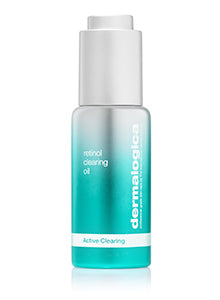
Can face oils cause breakouts
Find out if oil is a friend or foe in your skincare routine!
STORY HIGHLIGHTS.
- Some facial oils can indeed cause rashes - but many are very beneficial.
- Anyone can use facial oils; just make sure you're using the right oils for your particular skin type.
There are many types of oil - and not all of them cause breakouts. Some of them can even help keep your skin clear.
Oil produced by the skin
Your skin naturally produces sebum, a form of oil that protects the skin from drying out. Sebum can only cause breakouts when it comes together with breakout-causing bacteria and dead skin cells. Exfoliation helps prevent this from happening.
Occlusive Oils
Occlusive oils are oils that physically block water loss. They are found in many skin care products and can cause breakouts in some people. Petrolatum, mineral oil, beeswax, lanolin and paraffin are some occlusive ingredients to watch out for. Olive oil and coconut oil can also clog pores, but some people - especially those with dry skin - still like to use them. Everyone's skin reacts differently to different ingredients.
Non-comedogenic oils
Noncomedogenic oils are known for not clogging pores. One example is almond oil, which is high in fatty acids and can moisturize dry skin. Another, neem oil, has antibacterial properties and can even be useful as a spot treatment for breakouts.
Vegetable oils

Light phytolipids (plant-based oils) usually don't cause breakouts unless you're allergic to them. Ingredients like rosehip seed oil, squalane oil, argan oil, jojoba oil, and sunflower seed oil found in Retinol Clearing Oil are great for balancing oily skin and preventing skin dehydration (which can lead to increased oil production).
Facial oils can be used by anyone
Even people with oily skin! Facial oils can help balance your skin's sebum levels by giving it the moisture it needs and preventing your skin from working overtime to produce sebum. Whether you're new to using facial oils or a pro, make sure you know which ingredients are best for your skin. Read more about which ingredients and facial oils are right for your skin.

